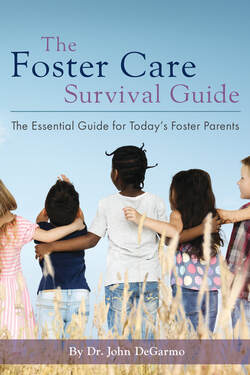
I was asked by a CNN reporter in April of 2020 how the closing of schools across the nation due to Covid would affect children and youth in foster care.
My response was that I was far more concerned about the mental health risks for children in crisis than I was of any virus.
Sadly, we are seeing this happening.
The real pandemic, now, is that of mental health for our children.
In truth, so many of our children and youth are suffering from a mental health crisis.
According to a study by the Center for Disease Control (CDC) on mental health issues of
teenagers during Covid, more than a third of teens experienced poor mental health during the pandemic. Along with this, just under half, or 44 percent, of teens said they felt persistently sad or hopeless during the same time period. In addition, more than a third of high school students— including nearly two-thirds of Asian students and more than half of Black students —reported experiencing racism before or during the pandemic. Youth and teens who reported that they had been treated badly or unfairly in school because of their race or ethnicity were also less likely to feel connected to people at school, as well as having a greater risk of issues related to poor mental health.
There has also been an increase in teen suicide attempts. According to a study by the
Centers for Disease Control and Prevention (CDC). Girls between the ages of 12 to 17 were
found to have tried to attempt suicide increased by roughly 51% in early 2021 than the same time frame in 2019. In addition, boys in the same age group had a 4% increase of suicide attempts, as well. Children in foster care are also at risk of suicide. To be sure, these are all issues that children in foster care face and struggle with on a daily basis. According to one study, adolescents who had been in foster care were nearly two and a half times more likely to seriously consider suicide than other youth. The same study also found that adolescents who had been in foster care were nearly four times more likely to have attempted suicide than other youth.
Join the thousands who receive Dr. DeGarmo’s FREE foster care newsletter. Simply fill out the form below
One study found that the physical abuse of school-aged children tripled in 2020. As
schools were closed across the nation, and children remained at home, the rate of child abuse rose significantly between the months of March to September of 2020. The study focused upon data gathered from more than 39,000 children treated at nine pediatric trauma centers, and found that 2,064 were victims of suspected child abuse. The study also found that the number of child abuse victims tripled for children 5 years of age and older.
In addition, studies show that up to five million children in the United States experience
and/or witness domestic violence each year. Whether it’s watching an act of physical or sexual abuse, listening to threats or sounds of violence, or viewing the evidence of such abuse in a victim in the signs of bleeding, bruises, torn clothing, or broken items, the effects are damaging to a child, in a variety of ways. Parents dealing with their own anxieties and struggles are sometimes not able to adequately care for their children. A study in Pennsylvania found that deaths and near-deaths of children as a result of abuse rose, as well, In 2019, 51 children died and 93 children nearly died as the result of child abuse. In 2020, 73 children died and 115 children nearly died as a result of child abuse. Together the two indicators rose 31 percent.
The statistics are grim. The dangers are real.
Children need our help, perhaps more than ever.
As foster parents, carers, and advocates, we need to recognize the signs of mental health, and take the steps the children need in order to treat these children, help them heal, and bring families the support they so desperately need in this time of confusion. If we do not, then we risk not only losing this generation, but their children and future generations, as well.
-Dr. John
For more, purchase your own personally signed copy of The Foster Care Survival Guide: The Essential Guide for Today's Foster Parents.



 RSS Feed
RSS Feed